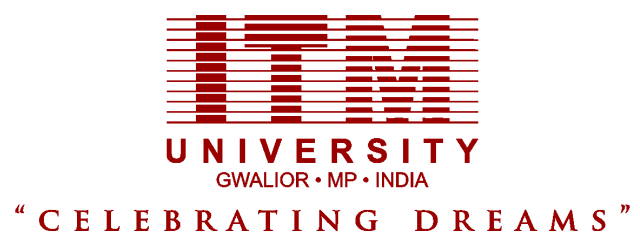By incorporating RAWE programs, educators can create transformative learning
experiences that connect students to the realities of food production and rural life. This
approach fosters environmental awareness, essential skills development, and a deeper
appreciation for the complex world of agriculture.
Rural Agricultural Work Experience (RAWE) is a pedagogical approach used in higher
education, particularly in agricultural universities, to provide students with practical,
hands-on learning experiences in rural agricultural settings. RAWE emphasizes experiential
learning, community engagement, and skill development in the context of agricultural
production, rural livelihoods, and sustainable agriculture. Here’s a comprehensive
elaboration on RAWE, covering its objectives, components, structure, types, implementation
strategies, advantages, and applications:
Objectives:
- Hands-on Learning: RAWE aims to provide students with hands-on learning
experiences, practical skills, and real-world exposure in rural agricultural practices,
technologies, and livelihoods.
- Community Engagement: RAWE seeks to engage students with rural communities,
farmers, and stakeholders to understand their needs, challenges, and aspirations,
and to collaborate on agricultural development initiatives.
- Experiential Learning: RAWE emphasizes experiential learning methodologies, active
participation, and reflection to deepen students’ understanding, critical thinking, and
problem-solving abilities in agricultural contexts.
- Skill Development: RAWE focuses on developing students’ technical skills, agricultural
competencies, and leadership qualities through supervised work experiences, field
observations, and practical projects.
- Professional Development: RAWE facilitates students’ professional development by
enhancing their communication skills, teamwork abilities, and cultural competence
in diverse rural settings.
- Promotion of Rural Entrepreneurship: RAWE aims to inspire and empower
students to explore entrepreneurship opportunities, agribusiness ventures, and
rural development initiatives that contribute to agricultural sustainability and rural
prosperity.
Components and Structure:
- Fieldwork Assignments: RAWE involves fieldwork assignments, projects, and activities
that allow students to engage in agricultural operations, production activities, and
rural development projects under the guidance of faculty mentors and agricultural
experts.
- Community Immersion: RAWE includes community immersion experiences where
students live and work in rural villages, farmsteads, or agricultural estates, interacting
with local farmers, agri-entrepreneurs, and rural residents to gain insights into rural
life and livelihoods.
- Practical Training: RAWE provides practical training sessions, workshops, and
demonstrations on agricultural techniques, technologies, and practices relevant to
local agro-ecological conditions, cropping patterns, and socio-economic contexts.
- Skill Building Activities: RAWE incorporates skill-building activities such as crop
cultivation, livestock management, soil conservation, water harvesting, organic
farming, agroforestry, horticulture, and value-added agri-processing to enhance
students’ technical competencies and problem-solving skills.
- Project Work: RAWE encourages students to undertake independent or group
projects on topics related to rural agriculture, sustainable farming, rural development,
or agribusiness entrepreneurship, culminating in project reports, presentations, or
demonstrations.
- Reflection and Evaluation: RAWE facilitates reflection sessions, group discussions,
and feedback mechanisms to help students reflect on their learning experiences,
identify strengths and areas for improvement, and evaluate their personal and
professional growth.
Types:
- Rural Farm Internships: Students participate in rural farm internships, where they
work alongside farmers, agricultural cooperatives, or farm families to learn about
crop cultivation, animal husbandry, farm management, and rural livelihoods.
- Rural Extension Programs: Students engage in rural extension programs, where
they assist agricultural extension officers, development agencies, or non-profit
organizations in disseminating agricultural technologies, best practices, and
information to rural communities.
- Agricultural Demonstrations: Students conduct agricultural demonstrations,
field trials, or technology showcases to demonstrate new agricultural practices,
innovations, or technologies to farmers and rural stakeholders.
- Agribusiness Start-up Ventures: Students develop agribusiness start-up ventures,
entrepreneurship projects, or rural enterprise initiatives that address local market
needs, value chain gaps, or agri-processing opportunities in rural areas.
- Rural Development Projects: Students collaborate with rural development
organizations, government agencies, or NGOs to implement rural development
projects, watershed management initiatives, or community-based natural resource
management programs in rural communities.
Implementation Strategies:
- Curricular Integration: RAWE should be integrated into the curriculum of agricultural
degree programs, extension education courses, or rural development modules to
ensure alignment with learning objectives, academic standards, and accreditation
requirements.
- Partnership Development: RAWE requires partnerships, collaborations, and linkages
with rural communities, agricultural institutions, government agencies, NGOs, and
local stakeholders to facilitate student placements, project collaborations, and
community engagement activities.
- Faculty Mentorship: RAWE benefits from faculty mentorship, guidance, and
supervision to support students’ learning experiences, provide technical expertise,
and facilitate reflection and debriefing sessions.
- Resource Mobilization: RAWE necessitates resource mobilization efforts to secure
funding, equipment, transportation, and logistical support for student fieldwork,
travel expenses, project implementation, and community outreach activities.
- Monitoring and Evaluation: RAWE should incorporate monitoring and evaluation
mechanisms to assess student learning outcomes, program effectiveness,
community impact, and sustainability, using qualitative and quantitative indicators,
surveys, and feedback surveys.
Advantages:
- Practical Learning: RAWE provides students with practical learning experiences,
hands-on skills, and real-world exposure that enhance their academic knowledge,
technical competencies, and career readiness in agriculture and rural development.
- Community Engagement: RAWE fosters community engagement, social
responsibility, and civic engagement by encouraging students to interact with rural
communities, understand their needs, and contribute to agricultural development
and rural livelihood enhancement.
- Professional Networking: RAWE facilitates professional networking, industry
connections, and career opportunities for students by exposing them to agricultural
professionals, rural entrepreneurs, government officials, and development
practitioners in the field.
- Personal Growth: RAWE promotes personal growth, cultural awareness, and selfconfidence among students by immersing them in diverse rural environments,
cross-cultural experiences, and experiential learning activities that broaden their
perspectives and enhance their adaptability.
- Rural Empowerment: RAWE contributes to rural empowerment, sustainable
agriculture, and rural development by empowering students to address rural
challenges, innovate rural solutions, and promote agricultural sustainability, food
security, and rural prosperity.
Applications:
- Agricultural Education: RAWE is applied in agricultural education institutions,
colleges, universities, and vocational training centers to provide students with
practical learning experiences, rural exposure, and hands-on skills in agricultural
production, farm management, and rural entrepreneurship.
- Extension Education: RAWE is utilized in extension education programs, rural
development projects, and community outreach initiatives to disseminate agricultural
knowledge, technologies, and best practices to rural communities, farmers, and rural
stakeholders.
- Rural Development: RAWE contributes to rural development initiatives, watershed
management programs, and sustainable agriculture projects aimed at improving
agricultural productivity, enhancing rural livelihoods, and promoting environmental
sustainability in rural areas.
- Agribusiness Incubation: RAWE supports agribusiness incubation centers, rural
innovation hubs, and entrepreneurship development programs that nurture rural
start-up ventures, value-added agri-businesses, and rural enterprise initiatives in
agriculture and allied sectors.
- Policy Advocacy: RAWE engages students in policy analysis, advocacy campaigns,
and rural development projects that address agricultural policy issues, promote
sustainable development goals, and advocate for the interests of rural communities,
smallholder farmers, and marginalized groups.
In summary, Rural Agricultural Work Experience (RAWE) serves as an effective pedagogical
tool in higher education, enabling students to gain practical skills, rural exposure,
and community engagement experiences in agriculture and rural development. By
integrating RAWE into academic programs, fostering partnerships with rural communities,
and providing mentorship and support to students, institutions can prepare students for
careers in agriculture, rural development, agribusiness, and sustainable livelihoods, while
contributing to rural empowerment, agricultural sustainability, and rural prosperity.


 Leadership
Leadership
 Recognitions
Recognitions  What Gwalior Offers
What Gwalior Offers
 Infrastructure
Infrastructure
 Diploma Programmes
Diploma Programmes
 PG Programmes
PG Programmes
 Graduate Programmes
Graduate Programmes
 Ph.D. Programmes
Ph.D. Programmes
 Eligibility Criteria
Eligibility Criteria
 Fee Structure (2025-26)
Fee Structure (2025-26)
 Scholarship Policy
Scholarship Policy
 Ph.D. Notifications
Ph.D. Notifications
